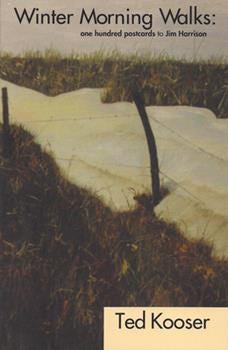
Today’s essay at
, coming later this morning, will feature of .Recommended reading
Tuesday’s essay circled back to the core catalyst for this newsletter: navigating a major life transition. I’ve referenced
quite a bit, since his book Life Is in the Transitions has really helped me make sense of my own journey. I’m not sure why it’s taken me this long to look, but — sure enough — Feiler has his own Substack, . Check out his essay “What’s the Hardest Part of a Life Transition?” and explore his archive for more nuggets, like this one about mistakes he made while grieving the loss of his father. at has been helpful in rethinking my roles as husband and father while redefining myself professionally. Check out his classic post “You are not your job.” It was one of the first things I read on Substack, and boy did it resonate with my very first post, “The Calling.”Another book that I have not referenced yet in this series, but that I have returned to frequently during major life upheavals is Terry Tempest Williams’s Refuge: An Unnatural History of Family and Place. Williams weaves essays on vanishing habitat for migratory birds with memories of her mother’s struggle with breast cancer. Like many dynamite titles, the meaning of refuge continues to expand throughout the book. And whenever I’ve felt like something is slipping away from me, or that the structures of meaning around me are crumbling, I’ve found solace in Williams’s book.
In a previous post, I recommended Emily and Amelia Nagoski’s book Burnout: The Secret to Unlocking the Stress Cycle and Jonathan Malesic’s The End of Burnout: Why Work Drains Us and How to Build Better Lives. Emily and Amelia Nagoski also write a Substack series,
. And you can keep up with at .What might you add to this reading list for anyone preparing for or undergoing a major life transition?
Lifequakes and other metaphors
Feiler likens major life disruptions to earthquakes that shake our foundations and force us to rebuild ourselves on the other side. Jann Peppler, of
, compares this process to composting: “Like the orange rind and banana peel that take longer than the kale, but never as long as the egg shells, compost only happens over time, in the dark, and with proper attention.” shared an old axiom about transitions in Tuesday’s comment thread: “When one door closes another one opens, but it’s hell in the hallway.”One thing I love about metaphor is that it is, fundamentally, an explanatory device. It’s how we convey elusive experiences, like love and grief, by comparing them to more concrete and accessible things. Hence the frequent comparison in illness narratives of a terminal diagnosis to deportation and of illness and health as two different countries with their own languages and cultures. My mentor, Ted Kooser, is a master craftsman of metaphor. He writes, in Writing Brave and Free, that metaphorical writing “seems to reach through the opaque surface of the world and offer a glimpse of that universal order beyond.” Which some might find in the idea of God and others might find in astrophysics. Here is Kooser again:
“The power of a metaphor may come not only in proportion to the distance between its elements, but also from the writer’s use of controls, so that the dazzling spark that arcs from one side of the comparison to the other is a clean flash, not dimmed by extraneous matter floating in between. A writer’s goal is to light up the sky.”
So let’s light up today’s discussion with some more metaphors for major life disruptions or transitions. How might we convey the abstract and hidden aspects of those experiences through more concrete and accessible associations?
Bonus
Kooser’s Winter Morning Walks, like Williams’s Refuge, combines both topics for today’s discussion. Kooser wrote Winter Morning Walks in 1998 after undergoing treatment for throat cancer. He had to stay out of the sun for a year, so he walked the country roads near his home in Garland, Nebraska, before dawn. During his illness, Kooser gave up reading and writing, feeling as diminished and hollowed out as Hitchens during his cancer treatment. But walking in the dark brought the writing instinct back to life, and Ted began writing again. His book is a series of short poems based on those early morning walks. They are short because he sent them all to his friend, the late Jim Harrison, as a series of postcards.
I’ll close with one that I’ve often used to illustrate the power of original metaphors. This one packs more of a punch when you think of the vulnerability Ted felt as he wrote it, wouldn’t you say?
march 7
Overcast, breezy and cold
This morning I watched a red-tailed hawk,
wings back, drop like the head of a hatchet
into the ditch. Whatever she caught
in the deep dry grass, rabbit or mouse,
had a moment to lie there before it could die
while the hawk stretched to full height,
fanned and then leisurely folded her wings,
tipped her head with a gleaming yellow eye
and for a minute watched it waiting.
Tune back in on Tuesday for the April podcast episode featuring Elizabeth Haswell.




Thank you for sharing! I'm honored and humbled that my work has resonated with your journey. Keep walking!
Refuge by Terry Tempest Williams is a treasure. I've gone back to it several times over the years. Then there is "When Women Were Birds", wherein she describes inheriting her mother's notebooks - all blank. The metaphors and the mystery of boxes and boxes of blank notebooks are pretty profound. Perhaps like compost, they are ripe to become something else.